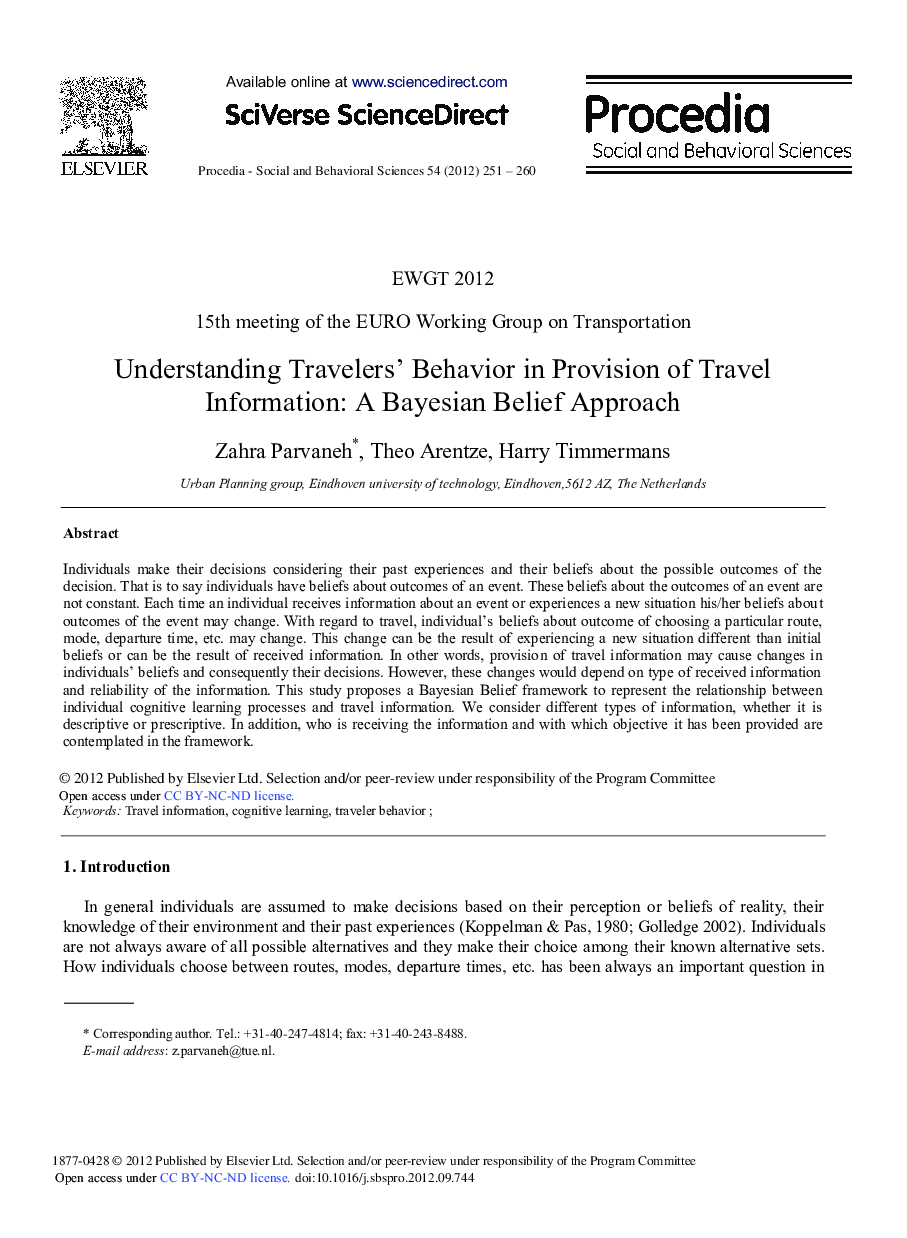| Article ID | Journal | Published Year | Pages | File Type |
|---|---|---|---|---|
| 1121363 | Procedia - Social and Behavioral Sciences | 2012 | 10 Pages |
Individuals make their decisions considering their past experiences and their beliefs about the possible outcomes of the decision. That is to say individuals have beliefs about outcomes of an event. These beliefs about the outcomes of an event are not constant. Each time an individual receives information about an event or experiences a new situation his/her beliefs about outcomes of the event may change. With regard to travel, individual's beliefs about outcome of choosing a particular route, mode, departure time, etc. may change. This change can be the result of experiencing a new situation different than initial beliefs or can be the result of received information. In other words, provision of travel information may cause changes in individuals’ beliefs and consequently their decisions. However, these changes would depend on type of received information and reliability of the information. This study proposes a Bayesian Belief framework to represent the relationship between individual cognitive learning processes and travel information. We consider different types of information, whether it is descriptive or prescriptive. In addition, who is receiving the information and with which objective it has been provided are contemplated in the framework.
